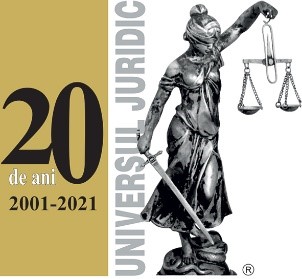Acţiunea în constatare, sub „stigmatul” subsidiarităţii. Quo vadis?
florina.popa[at]e-uvt.ro, catalinlunganasu[at]yahoo.com
Cuvinte cheie:
action in finding, subsidiary characterRezumat
An institution with a long tradition, built on its indisputable practical utility, the action in finding is a versatile means of prevention, meant to quickly defuse some latent conflict states, which otherwise could generate a wider judicial dispute in the future. Its legal status is marked by a relative precariousness, derived in particular from its subsidiary character in relation to the action in the exercise of the right, which proves all the more pernicious as the task of determining whether or not the party has another means provided by law for the realization of the right is not always easy, not even for the professionals of the legal field. In any case, the subsidiarity of the finding action in relation to the other ways provided by law for the exercise of the right appears to be reasonably justified, taking into account the imperative of good administration of justice, materialized, among others, in the need for judicious management of judicial resources. In this context, the procedural prerogative of modifying the request for finding in an action in the exercise of the right, conferred by the provisions of art. 204 para. (2) point 4 of the Code of civil procedure, appears to be a 'safety valve', but its mechanism is uncertain in the absence of the court's observance of the principle of adversarial proceedings and the right to a fair hearing.
Publicat
Versiuni
- 21-04-2023 (2)
- 13-09-2022 (1)









